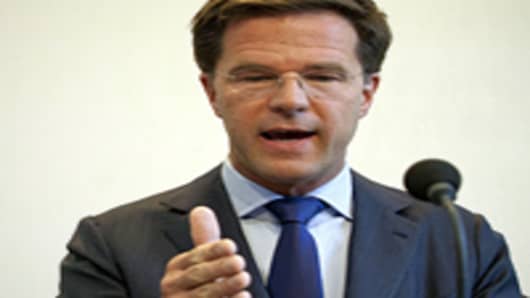The resignation of the Dutch governmentover the weekend showed how difficult it is for elected officials to push through austerity measures. Senior officials across the euro zone fret about how they can push through aggressive government spending cuts and tax increases and stay elected, but the data is beginning to indicate they could practice better politics and economics if they considered a plan B, according to some analysts.
In a note to clients, analysts at Commerzbank said data is now clearly showing that government debt in the euro zone’s periphery is rising, despite the imposition of tough austerity at the behest of the International Monetary Fund , the European Central Bank and the European Union. Following data showing Portuguese debtrose in the first quarter of 2012, Christoph Weil, the chief economist at Commerzbank says it is unlikely Lisbon will meet its targets without even more spending cuts.
“Without additional consolidation measures, it seems unlikely that Portugal will reach its target to keep its deficit stable at 4.5 percent of GDP this year” said Weil in a research note.
“The fact that last year the deficit was lowered only through a one-off payment from banks to the government in return for the latter taking over the institutions’ pension obligations is now taking its toll. This measure had brought the deficit ratio for 2011 down by about 3 percent of GDP, but now 'real' consolidation is required in its stead,” he said.
But officials in Berlin, Frankfurt and Brussels are likely to tell euro zone countries to try harder over the coming weeks as pressure grows in Spain and to a lesser extent, Italy.
“Not only Portugal, but Spain, too, has seen its budget deficit rise on the year in the first two months of 2012. Nor have Greece, Ireland or Italy made any progress in fiscal consolidation in the first months of this year,” said Weil.
“Although 2012 is still young and monthly budget figures are very volatile, it is clear that the recession is having a massive impact on public finances. At the same time, politicians are now much less willing to pass additional consolidation measures if necessary,” he said.
“This suggests that many countries will probably fail to reach their deficit targets in 2012. And this will not go a long way towards boosting confidence in fiscal policy,” said Weil.



